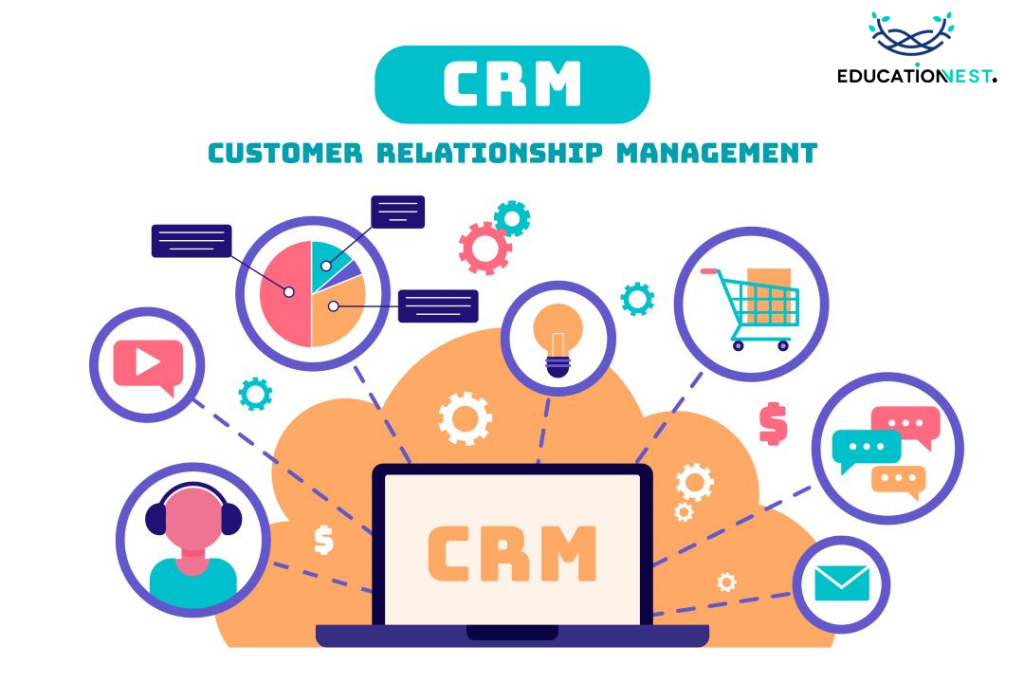Salesforce is a cloud-based CRM platform that helps businesses manage their sales, marketing, and customer service operations. It is a powerful tool that can streamline many aspects of your business, but it is only as effective as the testing that goes into it. Salesforce testing is an important part of the development process, ensuring that your application is working as intended and meeting the needs of your customers. In this guide, we will take a look at some of the best Salesforce testing tools available, as well as provide you with a tutorial and some interview questions to help you get started.
What is Salesforce Testing?

Salesforce testing is the process of ensuring that your Salesforce application is working as intended and meeting the needs of your users. This can involve testing both front-end and back-end functionality, as well as ensuring that the application is performing well under different load conditions. The goal of testing is to identify any issues or bugs before they impact your users, and to ensure that your application is delivering the best possible user experience.
Salesforce testing refers to the process of validating that all aspects of a Salesforce org – including customizations and configurations – work as expected. This testing aims to ensure there are no defects or gaps that could impact user experience or business processes within Salesforce.
Types of Testing
There are a few key types of testing conducted on Salesforce orgs:
- Unit Testing – Validates the functionality of a single method or class through test methods written in Apex code. Enables robust code development.
- Integration Testing – Verifies that connected systems are interacting properly, which is crucial given Salesforce’s API connectivity to external apps. Confirms end-to-end flows.
- User Interface Testing – Assesses the UI and validation rules created within Salesforce to guarantee correct data capture through screenshots, software, and automation.
- Performance Testing – Examines system behavior under load through volume, stress and spike testing. This is key for supporting higher user traffic.
- Regression Testing – Re-runs existing test suites against changes/enhancements to identify any new issues introduced. Takes advantage of test automation.
Key Concepts
Some other key testing concepts include:
- Leveraging sandbox environments to simulate production ops
- Importance of test data sets – either synthesized or anonymized real data
- Maximizing code coverage for complex business logic
- CI/CD and DevOps practices for quality test execution
- Reporting like Heat Maps to analyze gaps in testing
Salesforce Testing Tools
There are a wide variety of Salesforce testing tools available, each with its own strengths and weaknesses. Here are some of the most popular:
1. Selenium: Selenium is an open-source testing tool that can be used to automate web applications, including those built on the Salesforce platform. It is a powerful tool that can simulate user interactions, such as clicking buttons and filling out forms, and can be used to test both front-end and back-end functionality.
2. Provar: Provar is a testing tool specifically designed for Salesforce applications. It is a cloud-based tool that can be used to create automated tests and execute them across multiple browsers and devices. Provar also integrates with many popular CI/CD tools, making it easy to incorporate into your development process.
3. Tricentis Tosca: Tricentis Tosca is an enterprise-level testing tool that can be used to test Salesforce applications as well as other types of software. It is a comprehensive tool that includes both manual and automated testing capabilities, and can be used to test both front-end and back-end functionality.
4. JMeter: JMeter is an open-source testing tool that can be used to test the performance and scalability of Salesforce applications. It can be used to simulate large numbers of users and transactions, and can help identify bottlenecks and other issues that could impact the user experience.
Salesforce Testing Tutorial
Here is a step-by-step tutorial on how to test a Salesforce application using Selenium:
1. Identify the test cases that you want to automate.
2. Set up your Selenium environment, including downloading and installing the necessary drivers.
3. Create a new Selenium project and add the necessary dependencies.
4. Write your test cases using the Selenium API.
5. Run your tests and analyze the results.
6. Iterate on your tests to identify and fix any issues.
Also Read:
The Ultimate Job Description Of A Salesforce Developer
Salesforce Testing Interview Questions
Here are some potential interview questions you may encounter when interviewing for a Salesforce testing position:
1. What is your experience with Salesforce testing tools?
2. How do you approach testing a Salesforce application?
3. What are some common issues you have encountered when testing Salesforce applications, and how did you resolve them?
4. What are some best practices for testing Salesforce applications?
5. How do you ensure that your tests are comprehensive and cover all necessary use cases?
6. Explain how you would design tests for a new custom object?
7. How do you validate order processing from multiple systems?
8. What are best practices for test data management?
9. When would you recommend load testing vs stress testing?
10. What are common test automation challenges with Salesforce?
Conclusion
Salesforce testing is a critical part of the development process, ensuring that your application is working as intended and meeting the needs of your users. There are a wide variety of Salesforce testing tools available, each with its own strengths and weaknesses. By selecting the right tool for your needs and following best practices, you can ensure that your application is delivering the best possible user experience.
We hope this guide has shed light on Salesforce testing tools, techniques, and concepts to equip you with testing prowess! Leveraging test automation and frameworks can accelerate validation while enhancing quality. Mastering Salesforce testing both technically and strategically will surely bolster your skillset. Feel free to reach out with any other questions as you advance on your journey!
